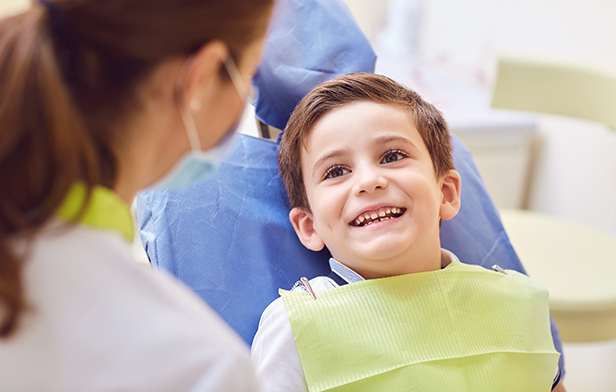Why Do Kids Seem More Likely to Get Cavities?
A lot of people assume that children are more likely to get cavities in their teeth than adults are. In some ways, that’s true, but not for any reason involving children’s teeth, specifically. No matter how old the tooth is, a cavity develops the same way – when oral bacteria infect a tooth’s structure. Either the enamel has grown weak from attacks by acid, which oral bacteria produce, or the enamel is compromised from excessive tooth wear or damage. The thing is, protecting teeth from cavities takes some effort on your child’s part. That includes consistently good hygiene, regular preventive care, and if it’s necessary, additional preventive measures to better protect your child’s teeth.
Is it true kids get more cavities?
The condition commonly referred to as a cavity is actually a depression in your child’s tooth that’s caused by an infection, or tooth decay. It’s a product of the infection, which is itself caused by the tooth being exposed to oral bacteria. It can often seem like children are more prone to cavities because they tend to have more difficulty keeping their teeth consistently clean at home. Until they master good dental hygiene practices every day, this will continue to be a risk. Children are also more rebellious when it comes to refraining from candy, sugary drinks, and other substances that can feed the bacteria that attack their tooth enamel.
How can you protect your kids’ teeth?
Because hygiene is the basis of cavity prevention, teaching your kids to brush and floss every day (and making they sure they do so properly) is key to helping them avoid cavities. In addition, make sure to bring your child in for preventive checkups and cleanings at least once every six months, or as often as your dentist recommends. The same principles apply to preventing cavities in your own teeth, so be sure to set good examples by following your own advice.
What if your child does get one?
While children’s teeth aren’t naturally more susceptible to cavities than adult teeth, the above factors can increase your child’s risk of developing one. If this occurs, then it’s important to treat the tooth and stop the decay as soon as possible. Even if the cavity is in a primary tooth that seems like it can fall out soon, waiting to see isn’t worth the risk. The decay behind the cavity may cause more problems for your child’s smile later if it isn’t addressed as soon as possible.
Keep your child’s smile safe from cavities
Kids’ teeth aren’t specifically more prone to cavities; children just often need a little more help keeping their teeth consistently clean. To learn more, schedule an appointment by calling Pediatric Dental Care at Casa Linda in Dallas, TX today at 214-321-4880. We proudly serve patients who live around Casa Linda and all surrounding Dallas communities.
filed under: Cavities/Tooth Decay



